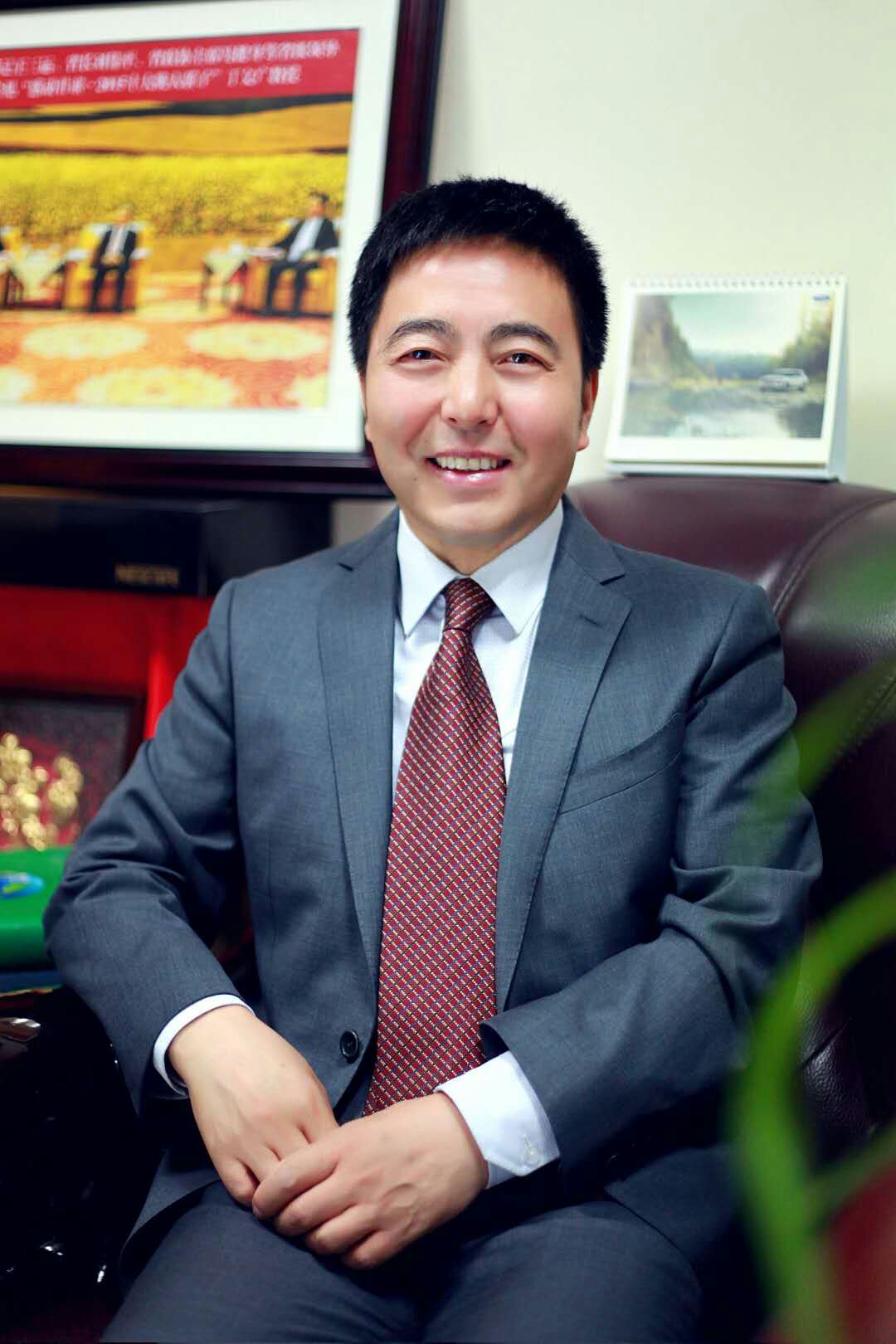
丁文广,兰州大学教授、博士生导师,资源环境与区域发展领域知名学者,甘肃省政府智库核心成员(省政府参事、省政府决策咨询委员会委员、省政府文史馆研究员)。作为跨学科实践型学者,创立甘肃一山一水环境与社会发展中心,深耕西北生态保护与社区发展20余年,创新性推动生态治理与乡村振兴融合,构建“政产学研用”协同治理模式,主持国家科技支撑计划等50余项课题,获省部级科技进步奖等荣誉奖项40多个,其研究成果深度转化为地方政策,是兼具学术造诣、社会行动力与政策影响力的复合型专家。
联系方式:1137976549@qq.com / wgding@lzu.edu.cn
学习经历
2001年3月-2005年6月:兰州大学资源环境学院,环境变化与管理博士研究生,获理学博士学位
1991年3月-1991年7月:北京师范大学“中国-加拿大语言中心”进修英语,获“出国留学资格证书”
1991年9月-1992年9月:加拿大Simon Fraser University学习高等翻译,获Simon Fraser University和British Columbia Association for Interpretation and Translation授予的“高等翻译资质证书”
1987年9月-1990年6月:甘肃农业大学草原系硕士研究生,获农学硕士学位
1980年9月-1984年7月:甘肃农业大学草原系,获农学学士学位
研究方向
1.环境管理包括国家公园管理
2.智库咨询
3.社会组织发展
4.世界银行、亚洲开发银行、联合国妇女署、全球环境基金等国际发展机构环境与社会发展项目咨询服务
工作经历
2003年7月至今:兰州大学资源环境学院 副教授、教授、博导
2008年1月起:甘肃一山一水环境与社会发展中心法人、理事长
1997年11月-2003年7月:中国西部扶贫世界银行贷款项目甘肃办公室处长、副主任、高级农业经济师
1990年6月-1997年11月:甘肃省畜牧厅项目管理处项目官员、副处长
1984年7月-1987年9月:甘肃农业大学草原系助教
主讲课程
1. 《环境政策与分析》(本科生)
2. 《论文写作指导与专业外语》(博士和硕士研究生通识课)
智库咨询
(1) 2002年起,担任世界银行项目环境与社会发展咨询专家。
(2) 2009年起,担任亚洲开发银行项目环境与社会发展咨询专家。
(3) 2010年起,担任联合国妇女署社会性别专家。
(4) 2003年起,担任科技部同行评审专家和国际经济技术合作专家。
(5) 2004年起,担任教育部同行评审专家。
(6) 2017年起,担任甘肃大熊猫国家公园体制试点工作顾问专家咨询组专家。
(7) 2019年起,担任大熊猫祁连山国家公园(甘肃片区)科技创新联盟专家委员会委员。
(8) 2020年5月起,受聘为甘肃省人民政府参事。
(9) 2020年6月,担任大熊猫国家公园管理局专家库专家。
(10) 2021年6月,担任甘肃省侨联“一带一路”国际技术转移中心副理事长。
(11) 2021年7月,担任甘肃省民政厅专家库专家。
(12) 2021年12,担任兰州新区绿色金融改革创新试验区智库团队专家。
(13) 2022年,担任兰州大学西部环境与生态安全智库副主任、首席智库专家。
(14) 2023年3月,受聘为甘肃省人民政府文史馆研究员。
(15) 2023年5月,受聘为甘肃省高级人民法院“甘肃省环境资源审判咨询专家”。
(16) 2024年6月,受聘为甘肃省人民政府决策咨询委员会委员。
代表性成果
丁文广教授深耕环境社会学研究三十余载,立足西部生态脆弱区与欠发达地区现实需求,构建了理论与实践深度融合的跨学科研究体系,形成了具有国际视野、中国特色的生态治理与社会发展创新成果。其研究以问题为导向,注重政策转化与社会应用,成果涵盖生态恢复、环境政策、能源转型、社会性别等领域,在学术界、政策界及国际社会产生广泛影响,主要贡献体现在以下七大方向:
(1) 理论创新:首创“生态恢复—灾害风险管理—生计改善”耦合治理模式
针对西部“生态退化—贫困加剧—灾害频发”恶性循环,基于甘肃50余个社区实证研究提出原创性理论框架:
▶揭示贫困的“双驱动力”机制,提出经济贫困是外部驱动力(EMP),政策体制是内部驱动力(IMP),需通过制度创新打破循环;
▶首创耦合治理模式,被纳入甘肃省科技厅软科学成果及精准扶贫实践,获省部级领导肯定,成为生态脆弱区综合治理范本。
(2) 技术突破:破解干旱区生态恢复技术难题
▶研发“干旱区林木栽植成活率提升技术”(国家发明专利号ZL201310154944.X),显著改善生态修复效率;
▶革新户用沼气池设计(国家发明专利号ZL200910205105.X),攻克低温产气、菌群流失等技术瓶颈,助推农村清洁能源革命,服务国家气候外交战略。
(3) 智库引领:国家公园治理的“甘肃方案”
▶主导《祁连山生态绿皮书》系列研究,构建生态保护与民生协同发展理论体系;
▶提交《祁连山新型管理机制建议》等资政报告40多份,获20多位省部级领导批示,推动“生态民治理模式”纳入国家公园建设实践,实现“学术话语—政策话语—治理行动”的闭环转化。
(4) 治理范式:环境善治理论的中国实践
▶提出政府—市场—社会组织“三元共治”框架,出版《环境政策与分析》等18部著作,系统阐释国家公园治理机制;
▶推动治理主体多元化理论在祁连山等保护区落地,为生态文明制度建设提供学理支撑。
(5) 学科交叉:能源与社会性别的开创性研究
▶ 在国际顶级期刊《Renewable Energy》发表中国首例能源—性别关联研究,揭示能源技术对妇女赋能的深层机制;
▶ 提出“技术变革—文化变迁—性别关系重构”理论模型,推动性别视角纳入能源政策设计。
(6) 机制创新:绿色金融ESMS系统实践
▶ 合作研发国内首个金融业环境与社会管理系统(ESMS),破解绿色金融“最后一公里”难题;
▶促成亚行贷款项目评估体系革新,推动环境风险管理工具在甘肃金融系统制度化应用。
(7) 社会服务:践行大学使命的公益典范
丁文广教授秉持兰州大学“自强不息,独树一帜”的校训精神,以甘肃一山一水环境与社会发展中心(简称“一山一水”)为实践平台,推动学术成果向民生福祉高效转化,实现“研究—行动—赋能”三位一体的社会服务创新:
▶公益实践规模显著:累计筹措社会资金超4亿元,精准帮扶210万西部贫困人口、生态脆弱区群众及弱势群体,覆盖教育支持、灾害救助、生计改善、生态保护等领域,成为链接学术资源与社会需求的枢纽型组织;
▶ 青年人才长效赋能:通过公益项目孵化、就业岗位开发,为226名大学生提供稳定就业机会,培养兼具专业能力与社会责任感的青年公益人才队伍;
▶模式创新标杆引领:带领“一山一水”获评“全国先进社会组织”,其“学术引领—政策倡导—社区参与”的公益模式被甘肃省委书记在全省大会上点名表彰,誉为“社会组织服务国家战略的甘肃典范”。
▶ 校训精神的时代诠释:“一山一水”的实践深刻诠释了兰州大学校训内核:
自强不息:以科研反哺社会,突破资源约束,在欠发达地区探索可持续发展路径;
独树一帜:创新“高校智库+社会组织”联动机制,构建产学研用深度融合的公益生态,为西部社会治理提供原创性解决方案。
丁文广教授通过“一山一水”平台,将学术追求与社会责任高度统一,彰显了新时代学者“扎根大地、兼济天下”的使命担当,其成果既是高校服务社会的典范,更是中国社会组织参与全球可持续发展议程的生动案例。
社会影响与学术贡献
成果获省部级一等奖等40余项奖励,被《人民日报》、央视等海内外媒体报道千余次,受国家领导人和多位省部级领导接见。作为联合国机构咨询专家,将中国经验推向国际发展领域,彰显三大特色:
(1) 问题驱动:始终聚焦西部生态治理真问题,实现“论文—专利—政策—民生”全链条创新;
(2) 跨界融合:贯通环境科学、社会学、管理学多学科,开创“理论构建—技术研发—制度设计”三维研究范式;
(3) 全球视野:以本土实践回应联合国可持续发展目标(SDGs),为全球环境治理贡献中国智慧。
丁文广教授以“把论文写在祖国大地上”为学术信仰,其成果既是扎根西部的生态治理中国方案,更是发展中国家实现环境正义与社会公平的宝贵探索,生动诠释了学者“顶天立地”的时代担当。
奖项荣誉
(1) 2010年7月:荣获甘肃省环境科学学会颁发的二0一0年度甘肃省“环境科学技术奖”二等奖。
(2) 2010年12月:荣获福特汽车(中国)有限公司颁发的2010年“福特汽车环保奖”节能减排环保奖一等奖。
(3) 2011年1月:荣获中共甘肃省委、甘肃省人民政府颁发的甘肃省第十二届社会科学优秀成果一等奖。
(4) 2011年6月:荣获环境保护部宣传教育中心、“淡水河谷”项目、上海公益事业发展基金会颁发的个人贡献奖。
(5) 2012年10月:荣获英特尔(中国)有限公司颁发的2012年“芯世界”公益创新计划之“协同合作奖”。
(6) 2013年3月:荣获中华人民共和国教育部颁发的第六届高等学校科学研究优秀成果奖(人文社会科学)三等奖。
(7) 2013年3月:丁文广荣获兰州大学“联村联户、为民富民”行动协调推进领导小组颁发的先进个人荣誉证书。
(8) 2013年4月:荣获中共甘肃省委宣传部、甘肃省科学技术厅、甘肃省科学技术协会颁发的甘肃省科普先进工作者荣誉证书。
(9) 2014年6月:荣获中共兰州大学委员会颁发的优秀共产党员证书。
(10) 2014年7月:荣获甘肃省委宣传部颁发的陇原先锋岗(2014年度)荣誉证书。
(11) 2014年12月:荣获中共甘肃省委宣传部、甘肃省文明办、甘肃省军区政治部、甘肃省总工会、共青团甘肃省委、甘肃省妇女联合会授予的“第四届甘肃省助人为乐道德模范”荣誉称号。
(12) 2014年12月:荣获中国光彩事业基金会颁发的旭化成水环保专项基金支持的2014水环保公益人物评选活动,水环保公益人物奖。
(13) 2014年:荣获福特汽车(中国)有限公司颁发的福特汽车环保奖—先锋奖二等奖。
(14) 2015年9月:荣获兰州大学颁发的兰州大学教学成果一等奖。
(15) 2015年10月:荣获中央宣传部、中央文明办、总政治部、全国总工会、共青团中央、全国妇联颁发的全国道德模范提名奖。
(16) 2015年11月:荣获全国社科联颁发的2015年度全国社科联优秀学会工作者荣誉证书。
(17) 2015年11月:荣获兰州市城关区精神文明建设指导委员会颁发的城关区“文明使者”荣誉证书。
(18) 2016年1月:荣获中共甘肃省委宣传部、甘肃省文明办、甘肃省广播电影电视总台颁发的“工行杯”感动甘肃·2015十大陇人骄子荣誉证书。
(19) 2016年5月:荣获西部商报—甘肃十大“慈善之星”。
(20) 2016年6月:荣获绿色中国年度人物评选活动组织委员会颁发的“2014-2015绿色中国年度人物”评选活动候选人。
(21) 2017年4月:荣获甘肃省教学成果奖评审委员会颁发的甘肃省教学成果奖。
(22) 2017年7月:荣获中共兰州大学委员会颁发的2017年“师德标兵”荣誉称号。
(23) 2017年7月:荣获全国社科联颁发的全国社科联优秀社会组织工作者荣誉证书。
(24) 2018年7月:荣获世界银行颁发的世行环境与社会管理培训证书。
(25) 2018年7月:荣获秦惠䇹·李政道基金管理委员会颁发的指导“窘政学者”见习进修科学研究证书。
(26) 2021年4月:荣获甘肃省人民政府参事室颁发的2020年度甘肃省人民政府参事咨政建言成果二等奖。(《关于进一步完善祁连山国家公园体制试点工作的建议》)
(27) 2021年4月:荣获甘肃省人民政府参事室颁发的2020年度甘肃省人民政府参事咨政建言成果二等奖。(《关于理顺兰州新区职教园区管理体制的建议》)
(28) 2022年3月:荣获甘肃省人民政府参事室颁发的2021年度甘肃省人民政府参事和参事室特约研究员咨政建言成果三等奖。(《关于解决省级文艺院团青年艺术人才建设面临问题的建议》)
(29) 2022年3月:荣获甘肃省人民政府参事室颁发的2021年度甘肃省人民政府参事咨政建言成果一等奖。(《关于我省实施乡村振兴人才队伍建设的问题及其建议》)
(30) 2022年3月:荣获甘肃省人民政府参事室颁发的2021年度甘肃省人民政府参事和参事室特约研究员咨政建言成果二等奖。(《关于解决省级文艺院团改革发展面临问题的建议》)
(31) 2022年3月:荣获甘肃省人民政府参事室颁发的2021年度甘肃省人民政府参事和参事室特约研究员咨政建言成果三等奖。(《关于政府购买文艺院团服务面临问题的调研建议》)
(32) 2023年5月:荣获甘肃省人民政府参事室颁发的2022年度甘肃省人民政府参事咨政建言成果一等奖。(《关于促进文化旅游融合发展建设国际知名旅游目的地的建议》)
(33) 2023年5月:荣获甘肃省人民政府参事室颁发的2022年度甘肃省人民政府参事咨政建言成果二等奖。(《关于加快推广应用职业教育专业教学资源库的对策建议》)
(34) 2023年5月:荣获甘肃省人民政府参事室颁发的2022年度甘肃省人民政府参事咨政建言成果三等奖。(《关于加强我省祁连山冰冻圈监测研究工作的建议》)
(35) 2023年5月:荣获2022年度甘肃省人民政府参事咨政建言成果三等奖。(《关于世界银行对我省职业教育的评估结论和建议的报告》)
(36) 2023年5月:荣获甘肃省人民政府参事室颁发的2022年度甘肃省人民政府参事咨政建言成果三等奖。(《关于我省基层群众信息获取渠道情况的建议》)
(37) 2023年5月:荣获世界银行集团颁发的“中国甘肃职业技术教育与培训项目”贡献和参与荣誉证书。
研究项目
(1) 2023年11月-2024年8月:主持甘肃盐池湾国家级自然保护区管护中心委托项目:甘肃盐池湾国家级自然保护区管护中心公益林资源调查
(2) 2023年4-11月:主持大熊猫祁连山国家公园甘肃省管理局酒泉分局自然资源调查监测项目——自然资源调查
(3) 2022年12月-2028年12月:主持亚行贷款丝绸之路沿线地区生态治理与保护项目甘肃子项目-咨询服务项目
(4) 2022年12月-2023年5月:主持世界银行贷款甘肃职教发展项目甘肃能源化工职业学院子项目——师资教学管理能力提升项目
(5) 2022年10-12月:主持甘肃省国家公园入口社区建设发展模式研究项目
(6) 2022年6-11月:主持甘肃一山一水环境与社会发展中心委托项目:绿色金融-ESMS
(7) 2022年6月-2027年12月:主持欧投行黄河流域沙化土地可持续治理项目
(8) 2021年3月-2022年2月:主持甘肃一山一水环境与社会发展中心委托项目:黄土高原生态林生态效益评估项目专项化验分析
(9) 2020年7月-2021年5月:参与甘肃一山一水环境与社会发展中心委托项目:环境与社会管理制度研究
(10) 2019年12月-2022年11月:参与国家重点研发计划-典型脆弱生态修复与保护研究重点专项:自然保护区评估、监控管理办法制定项目(批准号:2019YFC0507405-3)
(11) 2019年3-12月:甘肃省林草局委托项目:《祁连山国家公园甘肃省片区监测评估方案》
(12) 2018年3-12月:甘肃省林业厅委托项目:祁连山国家公园甘肃省片区体制试点有关试点工作任务—祁连山国家公园甘肃省片区监测工作专项规划
(13) 2016年5月—2019年12月:主持亚洲开发银行贷款甘肃特色农业及金融服务体系建设项目ESMS
(14) 2016年1月—2016年10月:主持“世界银行贷款甘肃省职业教育发展项目社会影响评价”
(15) 2016年6月—2017年12月:主持国家社科基金项目甘肃省社会救助瞄准与居民家庭经济状况核对体系研究项目(项目批准号:16BSH135)
(16) 2015年10月—2016年6月:主持“世界银行贷款甘肃文化自然遗产保护与开发二期项目社会影响评价”
(17) 2015年4月-2019年12月:主持“新疆维吾尔自治区世界银行贷款可持续发展农业项目监测评价”
(18) 2015年10月—2016年12月:主持甘肃省农村饮用水源水质监测项目
(19) 2015年10月—2016年7月:参与天水国家经济技术开发区发展规划研究项目
(20) 2015年5-12月:甘肃省发展和改革委员会委托项目:世行贷款甘肃文化自然遗产保护与开发二期项目社会影响评价报告咨询
(21) 2014年12月-2015年7月:主持民政部民政重点课题委托研究“区域差别对民政政策创制的影响研究”项目
(22) 2013年7-12月:主持国家社科基金后期资助项目“中国穆斯林生态自然观研究”(项目批准号:13FSH002)
(23) 2012年1月—2015年12月:主持国家科技支撑计划课题:气候变化对沙漠化影响与风险评估技术(批准号:2012BAC19B09)
(24) 2011年4月—2012年10月:负责主持联合国妇女署资助“倡导立法系统出台气候变化应对政策需关注社会性别敏感性条例”
(25) 2009年-2015年12月:负责主持施永青基金(香港)、嘉道理慈善基金会(香港)、德国密苏尔基金和UNDP等国际合作项目50多项
(26) 2014年12月-2015年12月:参加中央高校重点培育项目“西北荒漠区高效节水植被恢复技术体系研究”
(27) 2013年1月—2014年12月:参加中央高校重点培育项目“大敦煌生态圈”生态-水文-社会发展关键问题与对策研究项目
(28) 2012年6月-2013年8月:甘肃省农牧厅委托项目:企业项目建设对甘肃草原生态环境的影响监测与评估1
(29) 2012年5-10月:甘肃省草原监理站委托项目:企业项目建设对甘肃草原生态环境的影响监测与评估
(30) 2011年5-12月:主持崆峒区气候变化适应机制示范项目
(31) 2011年5-12月:主持气候变化适应机制示范项目
(32) 2011年4月-2012年10月:联合国妇女署委托项目:倡导立法系统出台气候变化/减轻灾害风险政策条例中关注社会性别敏感性
(33) 2010年3月-2011年12月:主持嘉道理基金生态环境治理与环境教育项目
(34) 2009年6月-2010年12月:主持甘肃农村水压式沼气池改进与示范推广项目(批准号:0910XCNA065)
发表论文
[1]Pu, X., Ding, W., Ye, W et al. Ecosystem service research in protected areas: A systematic review of the literature on current practices and future prospects[J]. Ecological Indicators, 2023, 154 : 16.
[2]Jiang Ping, Wenguang Ding et al. Identifying trend shifts in vegetation greenness in China from 1982 to 2015[J]. Land Degradation & Development, 2022, 33(9) : 1434-1445.
[3]Jiang Ping, Wenguang Ding et al. Interannual variability of vegetation sensitivity to climate in China[J]. Journal of Environmental Management, 2022, 301 : 113768-113768.
[4]Zafar Tanjia Binte, Wenguang Ding et al. Forest cover and land use map of the Chunati Wildlife Sanctuary based on participatory mapping and satellite images: Insight into Chunati beat[J]. Land Use Policy, 2021, 103
[5]Zewudie Dinka, Wenguang Ding et al. Spatiotemporal dynamics of habitat suitability for the Ethiopian staple crop, Eragrostis tef (teff), under changing climate[J]. PeerJ, 2021, 9 : e10965-e10965.
[6]Wenguang Ding ,Jiakai Tang, Xinran Tian , Xingde Liu , DanLu Li & Yiying Geng.Distribution Characteristics of Geo-hazards in a Reservoir Area, South Gansu Province, China[J].Indian Journal of Geo Marine Sciences. 49 (02), February 2020, pp. 233-240.
[7]Ping Jiang, Wenguang Ding, Ye Yuan, Weifeng Ye., 2020. Diverse response of vegetation growth to multi-time-scale drought under different soil textures in China’s pastoral areas[J]. Journal of Environmental Management, 274:110992.
[8]Wenguang Ding, Jiakai Tang, Xinran Tian,Xingde Liu. Distribution Characteristics of Geo-hazards in a Reservoir Area[J]. Indian Journal of Geo-Marine Sciences, 2020:233-240.
[9]Tanjia Binte Zafar, Wenguang Ding, Ghulam Murtaza Khan, Li He & Chen Hao.Environment Protection Strategies and Climate Change Adaption for Sustainable Development: An Overview of Bangladesh[J]. International Journal of Science and Business. 2019, 3(3): 107-113.
[10]Wenguang Ding, Li He, Dinka Zewudie,Huilin Zhang, Tangjia Binte Zafar, Xinde Liu, Gender and renewable energy study in Tibetan pastoral areas of China[J]. Renewable Energy. 133 (2019) 901-913.
[11]Ding Wenguang, Yu, Huailiang ,Zhao, Chen ,Xu, Hao, Chen, Lizhen, Xu, Luan.Impacts of historical socio-economic development policies on eco-environment in great Dunhuang region of China[J]. ENVIRONMENTAL SCIENCE & POLICY. 55 (2016) 258–265.
[12]Ding W , Wang L , Chen B , et al. Impacts of renewable energy on gender in rural communities of north-west China[J]. Renewable Energy, 2014, 69:180-189
[13]Wenguang Ding, Luan, et al. A comparative study of bioenergy consumption and \{CO2\ emissions in Tibetan region of China[J]. Renewable Energy, 2014.
[14]Wenguang Ding. Cost Effectiveness Analysis of Household Biogas Plants in China[J]. ENERG SOURCE PART B, 2013, 2013,8(4)(-):431-438.
[15]Xia Wang, Wenguang Ding et al. Fraction of Cd in oasis soil and its bioavailability to commonly grown crops in Northwest China[J]. Environmental Earth Sciences, 2013, 70(1) : 471-479.
[16]Ding W , Niu H , Chen J , et al. Influence of household biogas digester use on household energy consumption in a semi-arid rural region of northwest China[J]. Applied Energy, 2012, 97(3):16-23.
[17]Ding W , X. M I , Xian Y , et al. A Comparative Study between the Newly Improved and Chinese National Standard Biogas Digesters in a Semi-arid Region of Northwest China[J]. Energy Sources, 2012, 34(17-20):1737-1744.
[18]Wang X , Nan Z , Ding W , et al. Chemical Fraction of Heavy Metals in an Oasis Soil and Their Bioavailability to Cole Crops[J]. Arid Soil Research & Rehabilitation, 2012, 26(2):166-180.
[19]Xia Wang, Wenguang Ding, Zhongren Nan, Qin Liao, Wenfei Wu. Fractions and Bioavailability of Cadmium and Nickel to Carrot Crops in Oasis Soil, Polish Journal of Environmental Studies, 2012, 21(6):1876-1874.
[20]Ding W , Xian Y , Tao L , et al. A Research on Purification Effect of the Substrate of Constructed Wetlands with FS-G-CD-S-SS Model on Phosphorus Pollution[J]. Procedia Environmental Sciences, 2011, 10(1):2645-2653.
[21]Wenguang Ding, Wang, Lijun; Chen, Jinsong; Xian, Yunrang; Chen, Baoyu,The review of domestic and international biogas frontiers and technical achievements A study of the development of biogas technology in Gansu Province - In Xiyang city as an example, 2011 International Conference on Electrical and Control Engineering, ICECE 2011 - Proceedings, p 3739-3744, 2011, 2011 International Conference on Electrical and Control Engineering, ICECE 2011 - Proceedings.
[22]Wenguang Ding, Yunrang Xian, Yinli Wei, Lijun Wang, the Effect of Biogas Technology Adoption upon Women Living in Poverty Community, 2011 International Conference on Electrical and Control Engineering, ICECE 2011 - Proceedings, p 2675-2679, 2011, 2011 International Conference on Electrical and Control Engineering, ICECE 2011.
[23]Wenguang Ding, Yang Wu, Xia Wang, Yayu Gao, Family-size Biogas Plant Using Manure and Urine Mixture at Ambient Temperature in Semi-arid Regions of Northwestern China, World Academy of Science, Engineering and Technology, Issue 65, April 2010 ISSN 2070-3724,1206-1216.
[24] Wenguang Ding, Juan Yu, Xiujuan Wang, Jian Liu. Living Intelligently with Risks-An Application of CBDRM in Mitigating Landslides (A Case Study of Landslides Control Project Supported by Oxfam). Proceeding of International Disaster Reduction Conference, 2007. Harbin, China. Strategy and Implementation of Integrated Risk Management. Qunyan Press. Dec. 2007. Pages 45-46.(ISTP).
[25] Wenguang Ding, Lili Hu. A Research on the Vicious-Cycle of Poverty, Environmental Degradation and Disasters in Gansu Province. Proceeding of International Disaster Reduction Conference, 2007. Harbin, China. Strategy and Implementation of Integrated Risk Management. Qunyan Press. Dec. 2007. Pages 159-160.(ISTP).
[26] Hong Deng, Wenguang Ding et al., Effective Disaster Relief Actions in China through Community Participation - A Case Study in Implementation Procedures of Disaster Relief with Cooperation with Oxfam HK and Other INGOs. Proceeding of International Disaster Reduction Conference, 2007. Harbin, China. Strategy and Implementation of Integrated Risk Management. Qunyan Press. Dec. 2007. Pages 346-347.(ISTP)
[27]丁文广,高雪莲.牵住电价“牛鼻子”破解甘肃省电价水平与产业发展瓶颈[J].发展,2024,(11):23-26.
[28]曾子严,朱先磊,丁文广.“双碳”背景下电力企业碳管理体系的构建[J].能源与节能,2024,(10):40-45.
[29]万志纲,丁文广,蒲晓婷,等.祁连山国家公园产水量时空变化及驱动因素分析[J].水土保持学报,2023,37(06):161-169.
[30]李蕊,丁文广.基于SWOT分析的定西马铃薯产业发展策略[J].热带农业工程,2023,47(05):60-63.
[31]丁文广. 改善民生福祉 打造生态凤泉[N]. 新乡日报,2022-06-21(001).
[32]吕泳洁,丁文广,邓喆,隆耀成.基于地理探测器的甘肃省植被覆盖时空变化及驱动力分析[J].地球环境学报,2022,13(02):185-195.
[33]张鹏伟,丁文广.乡村旅游开发满意度研究[J].热带农业工程,2022,46(01):94-97.
[34]邓喆,丁文广,蒲晓婷,吕泳洁,王亚丽.基于InVEST模型的祁连山国家公园碳储量时空分布研究[J/OL].水土保持通报: 1-12[2022-07-06].DOI:10.13961/j.cnki.stbctb.20220524.001.
[35]唐家凯,丁文广,李玮丽,刘兴德.黄河流域水资源承载力评价及障碍因素研究[J].人民黄河,2021,43(07):73-77.
[36]姜萍,丁文广,肖静,潘新民.新疆植被NPP及其对气候变化响应的海拔分异[J].干旱区地理,2021,44(03):849-857.
[37]雷娜,丁文广,王文棣.生态治理中政府因素对公民参与意愿的影响研究——以甘肃省华池县为例[J].新疆农垦经济,2020(11):86-93.
[38]丁文广,穆阳洁,李玮丽,李田田.我国国家公园实施共同管理的前期探索[J].林业资源管理,2020(05):23-29.
[39]陈豪,丁文广,Tanjia Binte Zafar.基于USLE模型的祁连山国家公园土壤水力侵蚀评价[J].中国水土保持科学,2020,18(04):38-44.
[40]丁文广,万宗希.环境政策非预期效应研究[J].学术研究,2020(07):67-70.
[41]高文琪,丁文广,吴守霞,吕泳洁,李颖,弥应斌.天水市2013—2017年饮用水源水质分析及健康风险评价[J].环境化学,2020,39(07):1821-1831.
[42]任珂,丁文广.我国跨域水污染治理存在的问题及对策浅析[J].中国集体经济,2020(10):29-30.
[43]张慧琳,丁文广,田莘冉,许丹阳.2015年监测城市雾霾污染的时空分布特征及社会经济原因分析[J].沙漠与绿洲气象,2020,14(01):123-131.
[44]丁文广,王丽娜,耿怡颖.甘肃环县沙漠化时空演变及风险性预测分析[J].兰州大学学报(自然科学版),2020,56(01):48-55.
[45]任珂,丁文广.银行高端理财客户经理绩效考核问题研究——以A银行为例[J].生产力研究,2019(12):46-49.
[46]丁文广,王丽娜,石榴燕.社会组织创新性践行“四力”[J].社科纵横,2019,34(05):10-12.
[47]丁文广,刘兴德,耿怡颖,陈豪,何莉.甘肃省农业可持续发展评价及耦合协调性分析[J].中国农业资源与区划,2019,40(03):61-69+129.
[48]丁文广, 甘肃祁连山自然保护区生态环境保护体制机制创新研究. 甘肃省,兰州大学,2019-03-16.
[49]王丽娜,丁文广,许丹阳.基于DEM的甘肃省地貌形态特征分类[J].水土保持通报,2019,39(01):258-263.
[50]田莘冉,丁文广,张慧琳,许丹阳,郭学源.2011—2015年甘肃省部分区域水环境健康风险评价[J].环境化学,2019,38(01):142-151.
[51]樊晓丹,丁文广.城市居民最低生活保障制度实施中的问题研究[J].中国集体经济,2019(01):159-160.
[52]郑丽婷,丁文广.甘肃省农村低保政策执行中的问题与对策[J].中国集体经济,2018(34):10-11.
[53]刘译鸿,丁文广.县级政府政务公开存在的问题及其对策探微[J].中国集体经济,2018(32):70-71.
[54]张圆媛,丁文广.甘肃省农村养老主体发展探析[J].农村经济与科技,2018,29(13):222-224.
[55]丁文广,张慧琳,田莘冉.绿色金融——西北生态脆弱区生态安全的创新机制[J].环境保护,2018,46(13):66-69.
[56]丁文广,刘迎陆,田莘冉,张慧琳.祁连山国家级自然保护区创新管理机制研究[J].环境保护,2018,46(Z1):41-46.
[57]丁文广.扶贫新模式:“绿色母牛银行”[J].今日中国,2017,66(11):94-95.
[58]欧维,白英,丁文广,杨克勤,云山之远.祁连山生态之痛 半个世纪以来规模最大的治理战[J].环球人文地理,2017(17):44-53.
[59]耿怡颖,丁文广,刘兴德,徐浩,赵晨.不同排放情景下鄂尔多斯沙漠化风险预估[J].沙漠与绿洲气象,2017,11(04):70-77.
[60]刘译鸿,丁文广,刘书明.应急管理中政府与社会组织合作治理的路径选择[J].中国发展,2017,17(04):66-71.
[61]毋佳佳,丁文广.甘肃城市居民最低生活保障水平的经济适应性分析[J].云南农业大学学报(社会科学),2017,11(04):55-63.
[62]丁文广,耿怡颖,张慧琳,陈利珍.近40 a海西蒙古族藏族自治州沙漠化时空变化及驱动力分析[J].沙漠与绿洲气象,2017,11(03):1-8.
[63]高雪莲,丁文广.甘肃陇东南地区旅游扶贫效率的实证分析[J].北京邮电大学学报(社会科学版),2017,19(03):85-92.
[64]刘译鸿,丁文广,高雪莲.协同治理视角下传统产业“用工荒”化解方略——以甘肃省平川区为例[J].陕西行政学院学报,2017,31(02):20-23.
[65]丁文广,何莉,刘兴德. 着力加强生态环境保护 提高生态文明水平[N]. 甘肃日报,2017-04-17(008).
[66]潘爱璐,丁文广.非营利组织参与居家养老的综合探析[J].中国集体经济,2017(05):127-128.
[67]丁文广,赵晨,陈利珍,李丹璐.1975-2014年锡林郭勒盟沙漠化时空演变分析[J].兰州大学学报(自然科学版),2017,53(01):60-67.
[68]丁文广,陈利珍,徐浩,许娈.气候变化对甘肃河西走廊地区沙漠化影响的风险评价[J].兰州大学学报(自然科学版),2016,52(06):746-755.
[69]陈利珍,丁文广,耿怡颖,赵晨,李丹璐.1975—2015年都兰县沙漠化动态变化趋势研究[J].沙漠与绿洲气象,2016,10(05):64-71.
[70]丁文广,陈利珍,李丹璐,耿怡颖.1975-2014年晋西北地区沙漠化动态变化趋势研究[J].干旱区地理,2016,39(05):994-1003.
[71]刘煜昊,丁文广.兰州百合消费者行为细分[J].甘肃农业,2016(10):50-53+55.
[72]常忠哲,丁文广.区域差异对民政基本公共服务均等化的影响研究——基于省际数据的实证分析[J].桂海论丛,2016,32(02):63-69.
[73]常忠哲,丁文广.基于PSR模型的社会保障基本公共服务均等化水平研究[J].广西社会科学,2015(12):167-172.
[74]魏子哲,丁文广.外商直接投资对我国西部区域经济发展差异的影响研究[J].广西社会科学,2015(07):74-80.
[75]孟兴民, 白龙江流域滑坡泥石流灾害区域监测与重大灾害预警技术研究与示范. 甘肃省,兰州大学,2015-07-03.
[76]丁文广,禹怀亮.基于环境善治的生物多样性保护及其有效途径[J].环境保护,2015,43(05):34-38.
[77]沙仲才,丁文广.把爱心拧成一股温暖而强大的救灾力量——甘肃省社会组织岷县漳县地震灾害救援纪实[J].中国社会组织,2013(08):20-24.
[78]丁文广.定位于环境和灾害风险管理的村庄建设[J].中国乡村发现,2013(01):29-30.
[79]丁文广,冶伟峰,米璇,魏银丽.甘肃省不同地理区域灾害与贫困耦合关系量化研究[J].经济地理,2013,33(03):28-35.
[80]丁文广,魏银丽,王龙魁,米璇,冶伟峰.甘肃省环境退化、灾害频发及贫困之间的耦合关系研究[J].干旱区资源与环境,2013,27(03):1-7.
[81]丁文广.气候变化背景下减灾政策需更加关注妇女[J].中国减灾,2012(18):14-15.
[82]丁文广,魏银丽,仙昀让,吴洋.气候灾害对干旱区农业的影响及对策研究——以甘肃省为例[J].干旱区资源与环境,2012,26(05):35-40.
[83]丁文广,牛贺文,仙昀让,吴洋.甘肃干旱区土地利用历史研究[J].干旱区资源与环境,2012,26(02):89-93.
[84]丁文广,魏银丽,杨军梅,牛贺文.甘肃省中部干旱区植被恢复对土壤养分变化的影响研究[J].干旱区资源与环境,2012,26(01):159-163.
[85]丁文广,吴洋,牛贺文,仙昀让.中国林业CDM项目发展现状及前景研究[J].西北林学院学报,2012,27(01):265-268.
[86]丁文广,陈宝玉,仙昀让.甘肃省农村户用沼气池的价值量化分析——以甘肃省西阳乡为例[J].中国农学通报,2012,28(02):184-188.
[87]丁文广,仙昀让,魏银丽.企业主导的沙漠化治理模式研究——以甘肃省瓜州县为例[J].生态经济,2011(06):156-159.
[88]丁文广,陈劲松,吴晟,牛贺文.土壤养分的可见光谱研究[J].中国农学通报,2011,27(12):117-123.
[89]丁文广,陈劲松,吴晟,牛贺文.半干旱区土壤肥力与可见光谱的相关性分析[J].干旱地区农业研究,2011,29(03):150-155.
[90]丁文广,牛贺文,朱博,牛贺强.折板波形流人工填料污水处理方法的实验研究[J].环境科学与技术,2011,34(04):145-147+183.
[91]丁文广,刘敏.甘肃历史时期干旱、饥荒和虫害相关性研究及应对策略建议[J].干旱区资源与环境,2011,25(03):113-117.
[92]丁文广,魏银丽,牛贺文.西北干旱区植被恢复的土壤养分效应[J].生态环境学报,2010,19(11):2568-2573.
[93]丁文广,肖俊豪,汪霞.气候变化对我国森林自然灾害的影响[J].西北林学院学报,2010,25(05):117-120.
[94]丁文广,陈东梅.农村贫困地区的灾害风险管理研究[J].干旱区资源与环境,2010,24(05):69-73.
[95]丁文广,吴洋.后京都时代长江流域跨流域补偿机制研究[J].现代农业科技,2010(02):280-282.
[96]丁文广,卜红梅.产业结构调整对石羊河流域水资源可持续利用的影响——以民勤县为例[J].干旱区资源与环境,2008(11):19-23.
[97]丁文广,陈东梅.人为因素诱发的湿地灾害风险管理[J].林业资源管理,2008(05):32-36.
[98]丁文广,胡莉莉,王秀娟.甘肃省自然社会环境与贫困危机研究[J].环境与可持续发展,2008(03):17-19.
[99]丁文广,王秀娟,胡莉莉,刘剑.我国与发达国家灾害管理体制比较研究[J].安徽农业科学,2008(09):3888-3891+3899.
[100]丁文广,王秀娟,胡莉莉,刘剑.我国减灾投入与灾害损失关系研究[J].安徽农业科学,2008(08):3446-3448+3484.
[101]丁文广,雷青,杨勤.甘肃省夏河县草地退化驱动力及可持续发展对策研究[J].干旱区资源与环境,2007(12):84-88.
[102]丁文广,于娟,卜红梅.甘肃省能源资源禀赋与贫困关系的量化研究[J].经济地理,2007(06):1025-1029.
[103]丁文广,秦静.甘肃省文县自然—社会环境与贫困危机分析[J].安徽农业科学,2007(25):7966-7967+7976.
[104]丁文广,雷青.主成分分析在环境与贫困危机研究中的应用——以甘肃省43个贫困县为例[J].干旱区资源与环境,2007(03):6-10.
[105]丁文广,韩涛.用SMART和PM&E评估退耕还林政策绩效——以甘肃省定西市和平凉市为例[J].内蒙古社会科学(汉文版),2007(02):94-99.
[106]胡小军,丁文广,雷青.环境管理中的公平问题探析[J].环境与可持续发展,2007(04):47-49.
[107]秦静,丁文广.自然保护区林缘社区森林依赖度分析与研究——以白水江国家级自然保护区为例[J].林业资源管理,2007(04):43-48.
[108]韩涛,丁文广.环境政策风险的定义、分类及特性[J].陕西教育·理论,2006(12):256-257.
[109]丁文广,陈发虎,南忠仁.甘肃省森林资源禀赋与贫困关系的量化研究[J].干旱区资源与环境,2006(06):152-155.
[110]丁文广,雷青,于娟.甘肃省耕地资源禀赋与贫困关系的量化研究[J].经济地理,2006(04):636-638.
[111]丁文广,卜红梅,胡小军,等.甘肃省水资源禀赋与贫困关系的量化研究[J].中国人口资源与环境,2006, 16 (1): 282-284.
[112]丁文广,雷青,胡小军,等.论环境政策中的公众参与[J].中国人口·资源与环境,2006, 16 (2): 425-428.
[113]卜红梅,丁文广.甘肃中部干旱区生态环境退化及其治理对策研究——甘肃省东乡县案例研究[J].学术前沿,2006 (5): 122-125.
[114]丁文广,武红安.甘肃省农民负担现状调查与减负对策研究[J].中国人口·资源与环境,2005(06):100-106.
[115]丁文广,卜红梅,胡小军,雷青.甘肃省草地资源禀赋与贫困关系的量化研究[J].干旱区资源与环境,2005(S1):43-45.
[116]丁文广, 生态环境政策与贫困危机研究--以甘肃陇中黄土高原区退耕还林为例. 甘肃省,兰州大学,2005-02-01.
[117]丁文广,卜红梅,胡小军,等.CBDM在灾害管理中的应用——云南省景东县漫湾镇滑坡治理案例研究[J].中国人口·资源与环境,2005, 15: 108-110.
[118]丁文广,卜红梅,胡小军,夏锋.甘肃干旱区公众环境意识调查与分析[J].干旱区资源与环境,2004(S2):12-16.
[119]王伟,刘铁军,田良,颉耀文,丁文广.参与式社区工作方法与沙漠化治理—以甘肃省民勤县为例[J].干旱区资源与环境,2004(S2):52-55.
[120]丁文广,胡小军,卜红梅.甘肃中部干旱区退耕还林预设目标与现实差异研究—基于甘肃省定西市安定区的调查[J].干旱区资源与环境,2004(S2):77-81.
[121]丁文广,胡小军,等.甘肃中部干旱区退耕还林预设目标与现实差异研究[J].干旱区资源与环境,2004,18 (8 Supp.): 75-81.
[122]丁文广,杜国祯,卜红梅,胡小军.参与性环境管理的理论与实践——甘肃省玛曲藏族自治县参与性草地管理案例研究[J].兰州大学学报(自然科学版),2004,40: 277-281, 285.
出版著作
[1] John W. Longworth, Gregory J.Williamson 著, 丁文广 译. 中国的牧区[M]. 甘肃文化出版社, 1995.
[2] 丁文广, 胡小军, 邓红. 生态工程与农民 : 以农户为本的退耕还林政策研究[M]. 兰州大学出版社, 2006.
[3] 丁文广. 环境政策与分析[M]. 北京大学出版社, 2008.
[4] 丁文广, 陈发虎, 南忠仁. 自然-社会环境与贫困危机研究 : 以甘肃省为例[M]. 科学出版社, 2008.
[5] 丁文广, 肖俊豪, 汪霞. 农村环境学 气候变化的视角[M]. 2011.
[6] 丁文广, 曲建升, 王梦楠. 中国生态年报[M]. 兰州大学出版社, 2014.
[7] 丁文广. 中国穆斯林生态自然观研究[M]. 兰州大学出版社, 2014.
[8] 丁文广, 何其健, 常忠哲, 等. 中国生态年报[M]. 兰州大学出版社, 2015.
[9] 丁文广. 中国穆斯林生态自然观研究[M]. 兰州大学出版社, 2017.
[10] 丁文广, 许端阳. 气候变化影响与风险-气候变化对沙漠化影响与风险研究[M]. 科学出版社, 2017.
[11] 丁文广, 勾晓华, 李育. 祁连山生态系统发展报告(2018)[M]. 社会科学文献出版社, 2018.
[12] 丁文广, 勾晓华, 李育. 祁连山生态系统发展报告(2019)[M]. 社会科学文献出版社, 2019.
[13] 丁文广, 勾晓华, 李育. 祁连山生态系统发展报告(2020)[M]. 社会科学文献出版社, 2020.
[14] 丁文广, 勾晓华, 李育. 祁连山生态系统发展报告(2021)[M]. 社会科学文献出版社, 2021.
[15] 丁文广, 勾晓华, 李育. 祁连山生态系统发展报告(2022)[M]. 社会科学文献出版社, 2022.
[16] 丁文广. 爱在一山一水间[M]. 甘肃人民出版社, 2022.
[17] 丁文广, 勾晓华, 李育. 祁连山生态系统安全与适应性管理[M]. 科学出版社, 2023.
[18] 董众祥, 付鸿彦, 丁文广, 等. 祁连山国家公园酒泉片区自然资源调查[M]. 兰州大学出版。社, 2024.


在线咨询